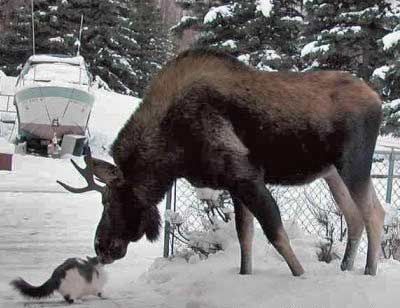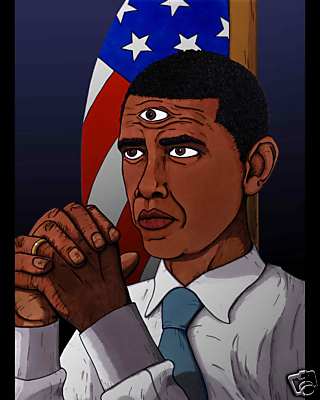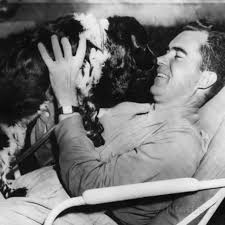The “Assassin” of Wilson Parts 6 and 7
Monday, February 16th, 2009Â Louis Adamic October 1930 American Mercury
VI. “Well, anyhow, from Seattle Wilson went down to Portland, and from there on to California.
“In a couple of days the wobblies in Seattle began to discuss the newspaper reports and rumors which were to the effect that Wilson wasn’t well, that he was ‘fatigued,’ and so on.
“Of course, he was sick before he started West, but when two weeks after leaving Seattle he finally broke down altogether, and had to abandon his tour, the IWW’s around Pugent Sound developed the idea that our demonstration on September 13 was behind it all.
“We five men who had called on Wilson, of course, told about our visit. I tried to be accurate, but the other four, I think exaggerated things a little. By and by the story of our visit, as it went from mouth to mouth among the wobblies, was to the effect that Wilson had collapsed while talking with us.
“Very few IWW’s were willing to remember that Wilson was a sick man before coming to Seattle. Almost everybody seemed to be convinced that we — the thousandas of wobblies who had lined the streets when he rode through Seattle — had ‘assassinated’ him. That was the word they used. And since I was the one who originated the idea, I was given the credit for the ‘assassination.’
“The idea persists to this day, and I don’t believe there is any way of killing it. The wobblies argue that I finished Wilson a goddamn sight more thoroughly than if someone had shot him dead or blown him up with dynomite. Had he been assassinated physically, they say, he would now be a rival for Lincoln as a national hero. In 1919 he was going through the biggest crisis in his career. A shot from an assassin’s gun would have saved him historically, whether his League of Nations went over or not, because such a death would have been dramatic and tragic. Instead, on September 13, he shrvilled up before our numbers, and in the next two weeks he degenerated into complete ineffectiveness. He has been of no consequence ever since. Now he is a futile old man — dead, although still unburied. That’s the wobbly idea about in on the Coast.”
I asked Kipps what he himself thought about it.
“Well,” he said, “I know that Wilson was sick before he came West in August, 1919. To say that our demonstration assassinated him, of course, is an exaggeration, but there is no doubt in my mind that it hastened his breakdown. It was, perhaps, the straw that broke the camel’s back.
“I’m called ‘the guy who assassinated Wilson.’ I guess I’ll be known as such the rest of my life, though in the last two years I’ve heard of two or three other men who claim to have suggested the demonstration on September 13. But I don’t care. They can have the credit. As a matter of fact, I often wish I hadn’t had anything to do with it, though I know that as an IWW I oughtn’t feel that way.
“There is no doubt, however, that the demonstration had a powerful effect on Wilson. Only the other day I picked up the latest Atlantic Monthly at the library and there was a little article by him called ‘Away From the Revolution!’ in which he appeals to the responsible capitalists of the country to lessen their resistance to the proletariat’s efforts to improve its lot. The article is almost hysterical in tone; the hysteria of a senile old man just awakened from a nightmare. Read and you’ll see.
“Wilson may live a few years longer and write a few more articles, but you can’t convince the wobblies on the Coast that hasn’t been dead ever since that Saturday afternoon in Seattle in 1919.”
……………………………………………………….
VII. As I have mentioned, Jack Kpps told me this story some time in 1923. Shortly afterward the IWW longshoremen’s union in San Pedro called a strike, tying up the harbor for two weeks, at the end of which time the strike was broken and then several of the leaders and agitators, including Kipps, were charged with criminal syndicalism, tried and sent to San Quentin.
Kipps was released late in 1927, and I ran into him one Sunday afternoon in Pershing Park in Los Angeles. He had spent over three years in the prison jute mill.
I scarcely recognized him. He looked definitely ill. He was all skin and bone, and all his hair, what there was left of it, had turned gray. Coughing dryly, he told me with a shrug of his shoulders that now he had T.B. for fair. He grinned and said: “I’m a short-timer.”
Woodrow Wilsonhad been dead then over two years.
Kipps was unwilling to discuss the Seattle incident any further. We talked of other things. He mentioned an article of mine that he had read in a magazine. I asked would he mind if some day I wrote up the Seattle demonstration. He thought a while, then he said:
“I’d prefer if you don’t. I’m not exactly stuck up over the fact that the idea behind the affair was mine. I never had any bad feelings toward Wilson. He probably was all right in some ways. He was prt of the System, helpless to do anything for the workers even if he wanted to. He meant well. The workers must help themselves; nobody else will or cal help them; and whether they can or not remains to be seen. That stunt in Seattle was aimed more at Ole Hanson and that bunch of coyotes there than at Wilson.
“If you wrote a piece about me, I probably couldn’t resist looking it up: and I don’t want to see it. I can’t get the affair out of my mind as it is. In San Quentin, when I couldn’t sleep nights, I thought about it for hours. I haven’t a bad conscience about it, or anything like that; but everywhere I go they say I’m the guy who assassinated Wilson. They called me that in San Quentin. Lately I’ve started to deny having had any connection with the matter whatever. I don’t like it. Wilson is dead now, so why gloat over it? After all, he was President of the United States. I can’t help feeling that way, although, perhaps as a radical I oughtn’t to.”
He paused a minute, coughing.
“But of course,” he said then, “I don’t care what you do” — coughing — “afterward. I mean in a year or two. I probably won’t last that long.”
Soon after this someone induced a wealthy woman radical in Pasadena, a parlor pink, to send Kipps to a sanitarium at Sierra Madre. He was there two years, a hopeless case, sitting in the sun, reading.
Last Spring he died.



